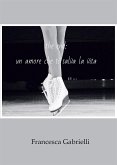The Well at the World's End is a high fantasy novel by the British artist, poet, and author William Morris. It was first published in 1896 and has been reprinted a number of times since, most notably in two parts as the 20th and 21st volumes of the Ballantine Adult Fantasy series, in August and September 1970. Using language with elements of the medieval tales which were his models, Morris tells the story of Peter, King of Upmeads, and his four sons, Blaise, Hugh, Gregory, and Ralph. These four sons decide one day that they would like to explore the world, so their father gives them permission, except for Ralph, who is to remain at home to ensure at least one living heir. From that point on, the plot centers on the youngest son, Ralph, who secretly departs contrary to his father's orders. Ralph's explorations begin at Bourton Abbas, after which he goes through the Wood Perilous. He has various adventures there, including the slaying of two men who had entrapped a woman. That woman later turns out to be the Lady of Abundance, who later becomes his lover for a short time.
Bitte wählen Sie Ihr Anliegen aus.
Rechnungen
Retourenschein anfordern
Bestellstatus
Storno









